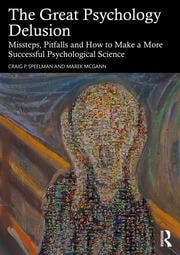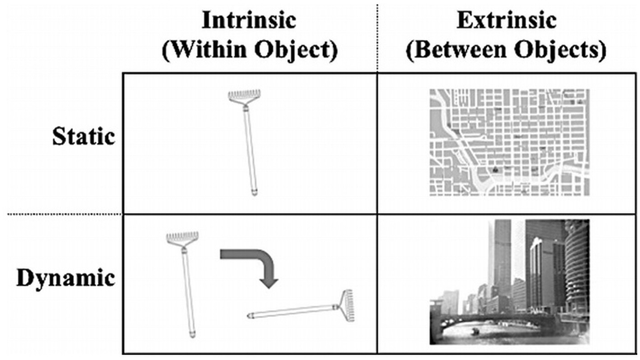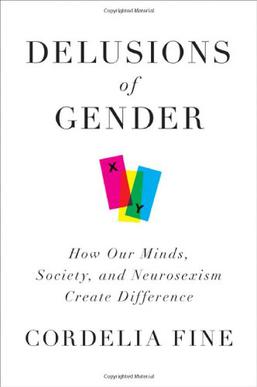
If I have to see this goddamn "spatial ability" argument one more time. Get more specific. What type of spatial ability you absolute clowns. Exactly what task, and explain how you address the spatial ability conflation with gender problems. Explain why and how these diffs vanish when you include all the spatial tasks THAT RESEARCHERS REMOVED BECAUSE GIRLS WERE GOOD AT THEM
https://link.springer.com/article/10.1007/s10648-023-09728-2

Gender Differences in Spatial Ability: a Critical Review - Educational Psychology Review
Spatial ability has long been regarded as important in STEM, and mental rotation, a subcategory of spatial ability, is widely accepted as the cognitive ability with the largest gender difference in favor of men. Multiple meta-analyses of various tests of spatial ability have found large gender differences in outcomes of the mental rotation test (MRT). In this paper, we argue that more recent literature suggests that the MRT is not a valid measure of mental rotation ability. More importantly, we argue that the construct of “spatial ability” itself has been co-constructed with gender, and thus has not been devised in a neutral way, but in a manner that is influenced by gender beliefs. We discuss that though spatial thinking is also required in feminized fields, past research has cast spatial ability as only necessary in masculinized STEM fields. Due to a prevailing belief that spatial ability was an inherently male ability, researchers “selectively bred” some spatial assessment instruments to maximize gender differences, rather than to precisely measure a spatial construct. We argue that such instruments, of which the MRT is one, cannot validly assess between-group differences, and ideas about biological or evolutionary causes of sex differences in spatial ability lack empirical evidence. Instead, the co-construction of gender and spatial ability better explains observed patterns. We also provide recommendations for spatial researchers moving forward.
@grimalkina Computer science concerns things people built, not nature. (Abstract math might be computer science for some values of all four nouns, but a compiler or a computer language are made things.)
If the tool chain was built to be congenial to a particular habit of thought, that's not gendered, that's style. (Some people get really mad when you call it style.)
E.g., declarative programming is something many self-identified skilled programmers loathe and are bad at. It remains effective.
But how does it matter? What are ye doin' with that premise? I fit the stereotype and struggle w/ 3D perceptions, depth, space... and if that meant we spent a little extra time letting me figure that otu, I"m all for it. Far more likely it would turn into "oh, don't do this thing. Look at how it's not coming naturally YOu're a girl."
Except it might "come naturally" in a different context, cultural or educational.
@grimalkina Okay, self-promotion makes my skin crawl, but as it happens myself and a friend have a book coming in Sept trying to re-up the debate on this. Trying to find some way to put it that it won't be ignored for another 70 years...
So many knives
This is the kind of thing that I stamp out HARD when people start up about it because it's rubbish and useless and serves no purpose whatsoever, except for exclusion

@dequbed @grimalkina can I mansplain here.
And point out the women that “I” know about who created the industry. From initial theory to chip design.
@grimalkina I also remember a guy introducing me to 3d Tetris, saying it was ok if I found it difficult because girls weren’t good at the spatial awareness thing, then his jaw dropped as I blew his score away. 😁
It’s really time for these myths to end.
@grimalkina
From that article:
"Shepard and Metzler’s visual stimuli were validated in a very specific context and may not be universally applicable, as their original experiments used a subject pool of eight adult male graduate students and faculty members at Stanford University who had many hours of practice with the subject matter"
In other words (per your earlier screenshot) "highly trained professionals in their respective fields" 🙄
@grimalkina Is this people p-hacking their way through the data, back towards their existing preconceptions?
This isn't just unscientific, this is anti-science.
@grimalkina Some coworkers and I (at a software company) were just talking about this last week. We were wondering if any of these tests, which claim to show gender-based aptitude for spatial ability, account for how boys and girls are raised as children.
Because within our group, all of the men had been given Lego sets and Knex when we were kids, and the women were given dolls. And then they give you a "spatial ability" test, which usually involves stacking blocks of some kind.
@tuckerm totally. Research commentary agrees with you, e.g., this piece talks about differences in developmental activities as well as the lack of clear definitions about what "spatial ability" is
https://www.frontiersin.org/journals/education/articles/10.3389/feduc.2023.1138607/full
@grimalkina some anecdotal data points
- my spatial ability is terrible, whenever any 3D related task arises i'm stuck on most primitive things.
- 3D related tasks do not arise in my work very often (7D tasks do, lately, good luck mentally rotating that).
- am a guy.
So like even starting assumptions seem made up. I bet most visual artists and designers do more mental rotation than stem people.
Please consider "Delusions of Gender", by Cordelia Fine, which tore into "the one repeatable gender difference test" (spatial reasoning) and referenced a study showing that the observed effects were due to "gender threat" (IE: our expectations on how well we *should* do, based on being reminded of our actual gender, or visualizing what it would be like to be the other gender).
Most Excellently Good Stuff!!! ❣️
I read it with a book group in Chicago.
For me, it was a real "eye opener!"
(But if you've read her papers, you're probably in a better position to judge.)
@grimalkina Did they show a significant correlation with cranium size and brain mass as well? 🙄
Perhaps if going for the "quinfecta" of spurious correlations, their followup will include race, age, height, and shoe size!
@grimalkina Well, of course. That's why areas like quilting, sewing, and knitting have so few women involved in them.
/Sarcasm
I dare anyone claiming women aren't good at special ability to say it to a group of expert quilters. But only if I can be there to time when it takes for the quilters to stop laughing.
@grimalkina I, a girl who is good at rotating cows in her mind, and directions, and math, and also an immigrant, am tired of hearing that I'm "one of the good ones".
There's some people who are so deeply invested in their worldview that anyone / anything who proves them wrong is immediately dismissed as an outlier.
I mean, those quotes are enough. Shreds all around like confetti.
:(
I am so grateful nobody told me that. I still absorbed many more implicit things but not that. I didn't appreciate it then as it was normal but I do now.












